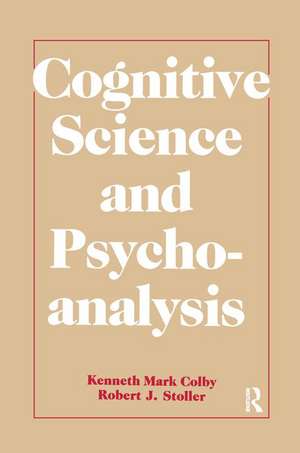Cognitive Science and Psychoanalysis
Autor Kenneth Mark Colby, Robert J. Stolleren Limba Engleză Paperback – 24 noi 2016
As viewed by the authors, cognitive science is "a new, lively field, full of novel concepts and methods about the mind." This is sharply contrasted with their opinion of psychoanalysis as a discipline which must change and consider such important problems in the study of the mind such as fantasies and feelings.
Colby and Stoller do not specify how psychoanalysis must evolve, but they do make suggestions for future research. They believe that they are "exercising the prerogative of tribal elders, pass(ing) the task along to the next generation."
Preț: 302.95 lei
Preț vechi: 364.17 lei
-17% Nou
Puncte Express: 454
Preț estimativ în valută:
57.97€ • 60.80$ • 48.26£
57.97€ • 60.80$ • 48.26£
Carte tipărită la comandă
Livrare economică 01-15 aprilie
Preluare comenzi: 021 569.72.76
Specificații
ISBN-13: 9781138970069
ISBN-10: 1138970069
Pagini: 176
Dimensiuni: 152 x 229 mm
Greutate: 0.45 kg
Ediția:1
Editura: Taylor & Francis
Colecția Routledge
Locul publicării:Oxford, United Kingdom
ISBN-10: 1138970069
Pagini: 176
Dimensiuni: 152 x 229 mm
Greutate: 0.45 kg
Ediția:1
Editura: Taylor & Francis
Colecția Routledge
Locul publicării:Oxford, United Kingdom
Public țintă
ProfessionalCuprins
Contents: Introduction. Science and Cognitive Inquiry. Preliminaries. Merits and Shortcomings of Psychoanalysis. Our- Science: No Reportable Data. Our-Science: Data on the Absence of Data. Our-Science: The Observing-Instrument. Our-Science: The Tests Analysts Offer. Folk Psychology. Homunicationalism. Homunctionalism. Homunculosis. Computational Psychology. Deflections. Conclusions.
Recenzii
"The book is highly original . . . interesting and readable . . . timely . . . (and) it signals an overture towards the solution of the ever-present dilemma of mind."
—John Romano, M.D.
Distinguished University Professor of Psychiatry Emeritus, The University of Roc
—John Romano, M.D.
Distinguished University Professor of Psychiatry Emeritus, The University of Roc
